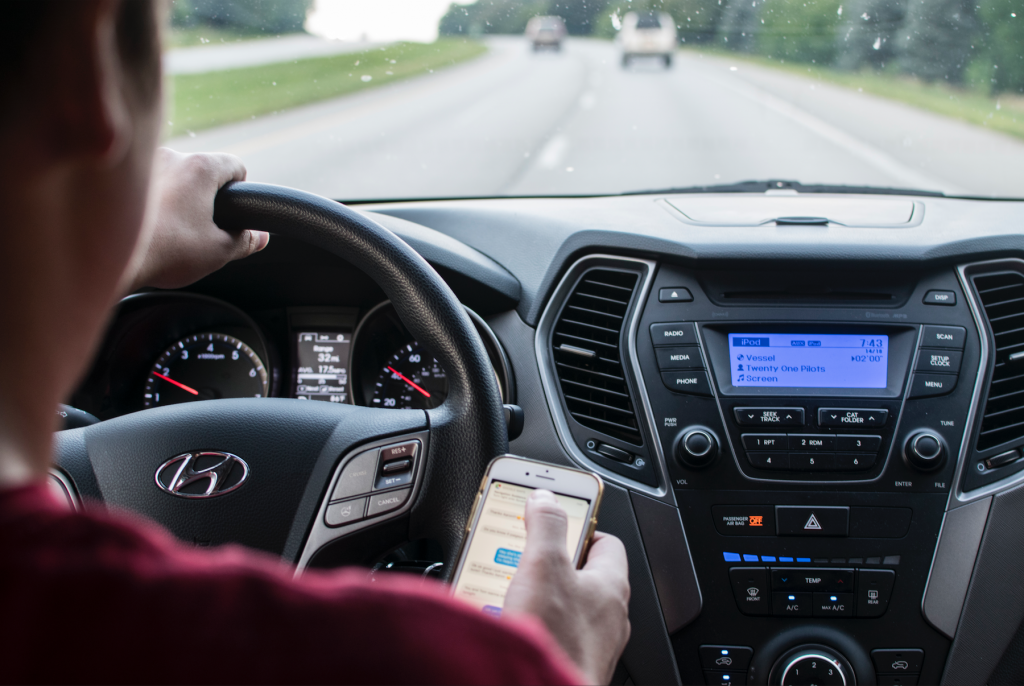Iowa has seen a dramatic increase in citations for texting while driving since the state bumped the bad habit to a primary offense in July 2017 and allowed officers to pull over texting drivers.
The Iowa State Patrol gave 1,131 citations for texting while driving from July 1, 2017, to June 30, 2018, compared with 182 the fiscal year before. Iowa City police gave 33 citations in the same time period, up from 12 the previous fiscal year.
“The thing that’s eye-opening is the number of violations,” said Sgt. Nathan Ludwig, the State Patrol public-information officer.
The public knows it is illegal to surf the web and to write, send, or receive texts while driving, he said, but people do it anyway.
Before last year, texting while driving was illegal but was a “secondary” offense, Ludwig said. Officers could not pull drivers over just for doing it; they could only enforce the law in conjunction with another offense.
He said the State Patrol has developed strategies to catch distracted drivers. Officers often use cameras to film drivers looking down at screens instead of ahead at the road to establish their case in case drivers deny texting.
Undercover officers sometimes stand in medians at traffic lights, Ludwig said, and tell officers farther away about drivers who text while stopped. He said many people do not know that texting is illegal even at stoplights.
He said he hopes that better enforcement will discourage drivers from texting.
“That’s the idea, to get awareness out there that this is happening so much,” he said.
Sgt. Derek Frank, the Iowa City police public-information officer, said the force does not use any strategies to catch texters, though most of their traffic stops for texting were done in unmarked vehicles.
He said the change in the law is good.
“It gives us the ability to enforce the issue,” he said. “It was kind of strange to have it put on the books but be unaddressable.”
John Gaspar, a research scientist at the University of Iowa National Advanced Driving Simulator, has spent years studying the human component of traffic and safety. He agreed with Frank that the new law was positive.
“I think anything that motivates drivers to engage less with potential distractions while they’re driving is a useful step,” he said.
Gaspar said, however, that the limited scope of the law is a challenge — it addresses texting and web surfing but not other distracting tasks such as navigating entertainment systems or selecting music.
Gaspar’s research has shown that any task that takes a driver’s eyes off the road for more than two seconds is dangerous. He said the human brain is bad at dividing its attention.
Because potential hazards such as deer running onto the road are so unpredictable, he said, drivers should always be alert. He said such technology as automatic emergency braking and driver-monitoring systems could help partially compensate for distracted drivers in the future.









